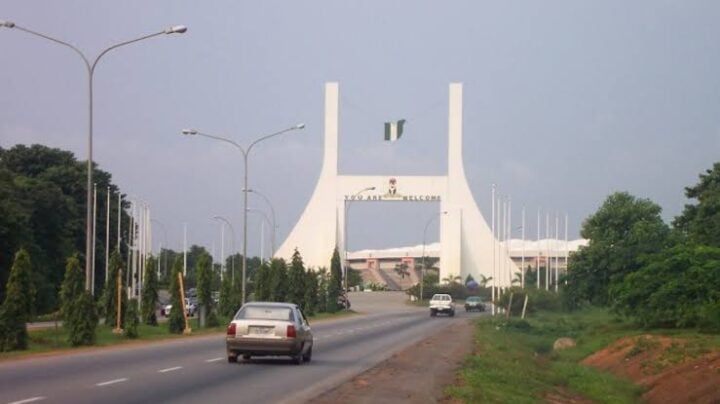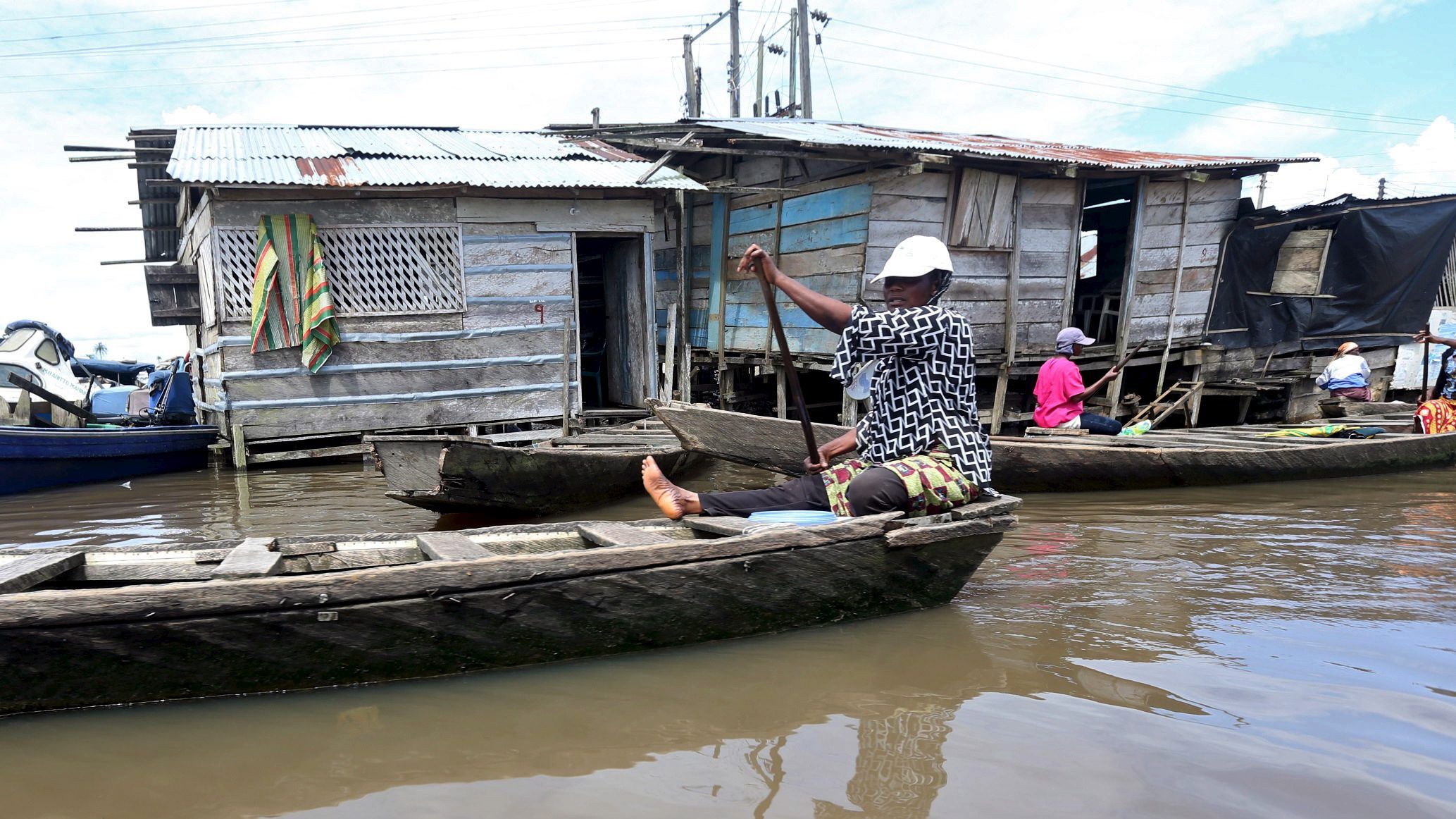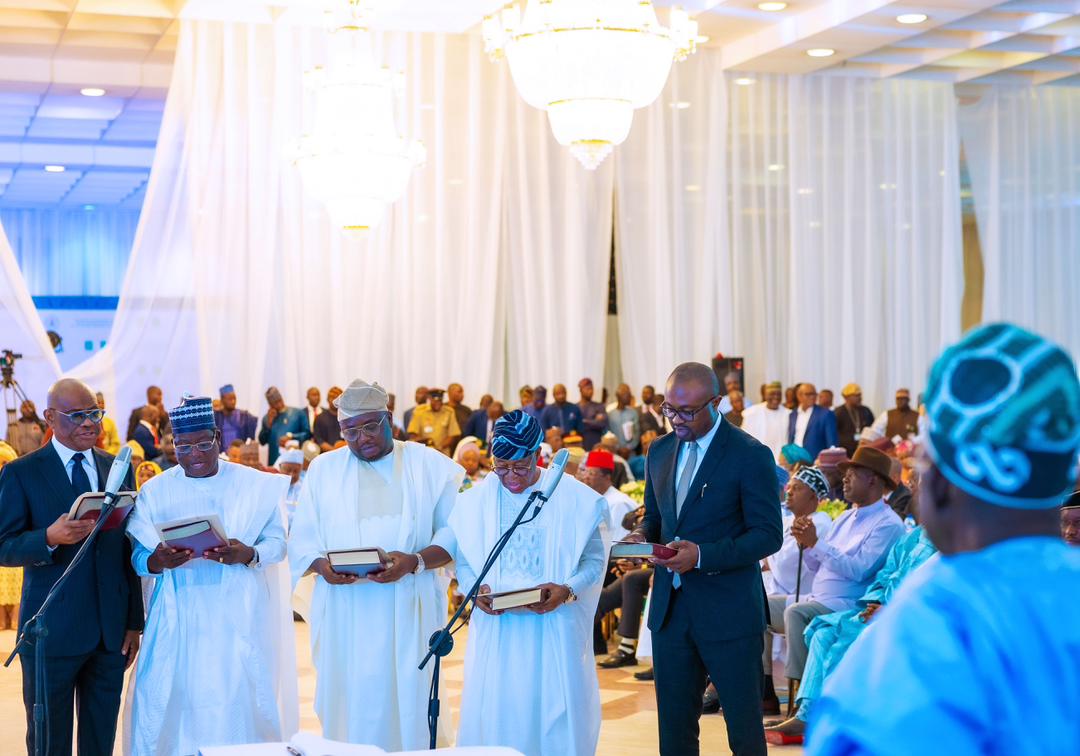FCT
If there is anything the Federal Capital Territory needs to recover from the manifestations of poor and substandard leadership delivered by most of the past ministers of FCT since 1999, it is that simple, but powerful word ‘ORDER!’
Except for the interlude of purposeful leadership by Mallam Nasir El-Rufai from 2003 to 2007, the lack of necessary respect for and adherence to the principle of ‘order’ in the development and management of FCT has been the bane of actualizing the lofty vision of the territory.
Throughout his time in office, the singular fight of Minister Nasir El’ Rufai was to restore order and establish the culture of order. He fought the high, the mighty and the powerful like an angry wolf to restore the distorted Masterplan. He fought aggressively to restore order in contract allocation and implementation. One of the many victories of the small but mighty minister was the section of Olusegun Obasanjo way from Bolingo Junction all the way to Wuse Zone 7 junction. On paper, the road was a four lane dual carriage way, but in real life, it was a two lane single carriage way. El – Rufai insisted the right thing must be done, and it was done.
Asides from the hefty distortion in the Masterplan violation that saw state of the art houses, malls, churches and mosques sitting pretty in wrong places, one of the greatest areas of disorder in the FCT before El – Rufai’s revolution was in the area of land administration. Thousands of cases of double allocations and cloned land documents abound because the system was not computerized. The system was so messed up then that some of the civil servants in charge of land administration allocated lands to themselves in the names of generations of their babies and grandchildren that were still in heaven waiting for wombs they will be assigned to by the Almighty God. Some civil servants and their friends and families have up to 100 lands allocated to them in fictitious names while hundreds of thousands applications were dumped away untreated. Land grabbers were having a field day in partnership with corrupt civil servants in the Ministry. El – Rufai introduced order to sanitize the system by establishing the Abuja Geographical Information System (AGIS) to promote full computerization of the land registry. In all he determined to do to set the FCT in order, President Olusegun Obasanjo stood behind him like the rock of Gibraltar. This emboldened Mr. Fix it to do his work without fear.
Advertisement
Although the mortal and inperfection nature of man didn’t allow the Minister to fix all that should have been fixed by him, he doubtless did so much work that he became endeared to majority of people in the FCT.
The signature of order being restored to FCT by the ‘good minister’ was beginning to take real shape all over the place when the tenure of President Olusegun Obasanjo came to its end and Nasir El – Rufai’s revolution came to an end on the 28th of May, 2007.
Aliyu Modibo Umar (2007 to 2008) and Adamu Aliero (2008 to 2010) were appointed by President Umar Musa Yar’ ‘ Adua to take over from Nasir El – Rufai in that order. Their performance in office combined showed that the shoe Nasir El – Rufai left behind was too big for them to wear. As it was for Adamu Ailero, so it was for all the other ministers of FCT since 2007 till date.
Advertisement
The order El – Rufai established in 4 years have been significantly overturned since Modibo Umar took over in mid 2007 and the territory has danced backwards since then in many areas into lawlessness and bastardization of systems by the privileged people in the governing class and their cronies.
The greatest battle the new Minister of FCT, Barr Nyesom Wike must begin with therefore is that of restoring order and institutionalizing it.
What is order? Oxford dictionary describes order as “the arrangement or disposition of people or things in relation to each other according to a particular sequence, pattern, or method.”
The existence of order or it’s absence in any clime is not difficult to notice. All you need to do is simply open your eyes and engage them in active watching or surveillance.
Whatever the type of surveillance or observatory gaze anyone with seeing eyes choses to take towards Abuja – be it casual or cursory, careful or consistent – the fellow won’t look too far before he or she locates the absence of order in both it’s connotative and denotative imperatives.
Advertisement
From the office of the bureaucrats managing the city to the highways and byways; from the fledging urban slums to the poorly maintained, abandoned or rapidly deteriorating infrastructure, Abuja is crying for order as the desert is crying for rain and as the dying is yearning for life.
The Federal Capital City was envisioned from the outset to be Nigeria’s most functional city of purpose. Lagos, the capital city of Nigeria since independence was congested and orderly development was becoming a herculean task. Lagosians spent hours in traffic jam daily and the attendant chaos became a huge snarl on the economy, governance and the general well-beign of Lagosians and the visitors.
To remedy the Lagos situation, thousands of houses will have to go and compensation that will have to be paid will be humongous. The government of late General Murtala Muhammed therefore felt it was better to go ahead and build a new Federal Capital City which General Yakubu Gowon’s government had also being thinking about. A committee headed by Justice Akinola Aguda was set up by General Muhammed in 1976 and at the end of the Committee’s work, the vision of FCT was born.
The Federal Capital Territory occupies a landmass of over 8,000 square kilometers and was carved out of the old Kwara, Niger and Old Plateau States. The indigenous inhabitants of Abuja are the Gbagyi (Gwari), the Bassa, Gwandara, Gade, Dibo, Egbira, Nupe and Koro.
Advertisement
Forty seven years after the development of Federal Capital Commenced and thirty years after the seat of government moved to Abuja, the Federal Capital Territory is sadly still struggling for order needed to become what is was designed to be. There is a significant and glaring dis-alignment in the disposition of the administrators of the territory and the people in relation to progress, development and public administration according to a particular sequence, pattern, or method that would reflect best practice and excellence.
Organized sequence, pattern and method are essential components of a city’s character. They are the foundation of organic development. They are the anchor of sustainable progress and the enforcer of responsible citizenry. Introducing order and institutionalising it needs a good driver leader who knows what to do, is determined to do it, is willing to do it with the right team and willing to communicate why it needs to be done to the people effectively. It is only when the people are willing to accept the reign of order as the best culture that true progress and sustainable development can be made to happen.
Advertisement
It is sad to say today that over 90% of the order Mallam Nasir El – Rufai introduced to FCT in 2003 to 2007 have been eroded and washed away by poor leadership and general indiscipline amongst the citizens. Land grabbing is back now and the perpetrators are prominent amongst the movers and shakers in the territory. Vehicles (including governments official vehicles) drive recklessly against traffic on highways all over the city; drivers disobey traffic lights at will without the fear of being punished and commercial cyclists and Keke operators drive around the city like outlaws without obeying traffic rules.
Beggars and street traders are running their empires in the city as they desire. Buildings that ought not to be approved because they simply didn’t make sense are springing up all over the city. Make shift, unsightly and rowdy bus stops are littered everywhere they ought not to be. They impede free flow of traffic in many cases. The reckless abuse of waterways and green areas in many parts of the city is promoting flooding every year and leading to loss of precious lives. Properties worth trillions of naira are lost to these floodings too. The prevailing behaviour and character of the leadership and followership in FCT worrisomely reflect a hopeless surrender to disorderliness and chaos.
Order is established by human beings for all human beings to embrace and for the society to function peacefully, effectively and efficiently. No man is above order.
The biggest place for order to begin therefore is in the corridors of power in the FCT, the territory’s public service, it’s agencies and in the lives of men and women lawfully assigned to carry out the duties of the state. A disorderly individual occupying a position of leadership can’t in good conscience promote order. Lopsided appointments, nepotistic assignment of positions and favouritism in the promotions of personnel in the bureaucracy will create a toxic environment where order will be stifled and caged.
FCT bureaucracy needs sanitization to make room for the culture of order to permeate the system.
Advertisement
Promoting order in FCT must commence from the office of the Minister and flow to the entire FCT Public Service. The Public Service through effective and efficient performance by every staff will make dispensing of order to the nooks and crannies of the territory effortless and impactful.
The pain of lack of commitment in orderly development in FCT is felt more by the poor people in the satellite villages. Unfortunately, many of these villages have never had the honour of being visited by their elected representatives or the Minister and his leadership bigwigs. The chaos in the system makes it hard for the voices of these poor villagers to reach the seat of power and receive prompt and orderly attention.
With a tone that is too faint to be heard, the soul of FCT is crying for order like a hungry suckling babe wailing out of the pang of unbearable hunger for the breast milk of the mother. From Abaji to Abuja Municipal, from Gwagwalada to Bwari and from Kwali to Kuje, the Federal Capital is looking for a strong, visionary, courageous and determined leader who will take the gavel of governance and hammer a loud ORDER! to herald a new beginning. Let’s wait and see what Nyesom Wike will do.
Advertisement
Osho is a passionate advocate of Nigeria’s emergence as the pride of Africa through quality and innovative leadership. He is a global road safety advocate and co-founder of Safety Beyond Borders & Inspire Nigeria Initiative.
He was the candidate of the Social Democratic Party (SDP) for Senate in FCT during the 2023 elections.
Views expressed by contributors are strictly personal and not of TheCable.
Add a comment







